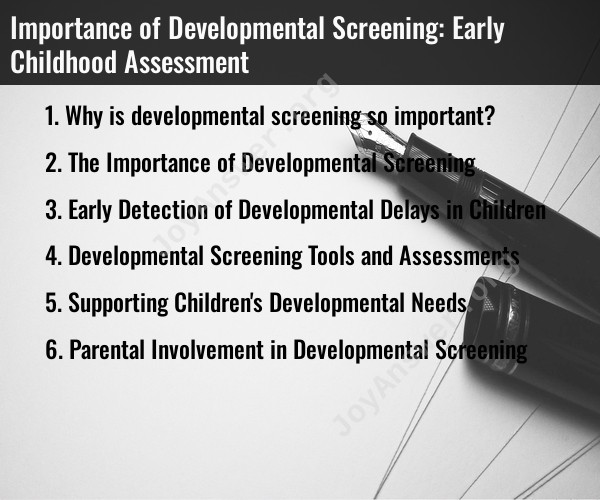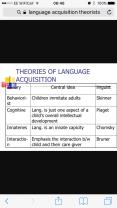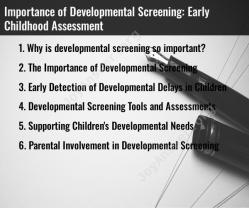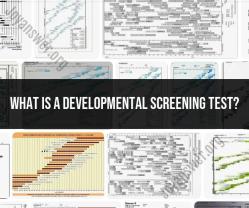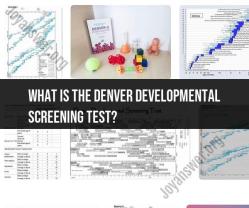Why is developmental screening so important?
Developmental screening is a crucial component of early childhood assessment and plays a significant role in the well-being and development of young children. Its importance stems from several key factors:
Early Identification of Developmental Delays: Developmental screening helps identify potential developmental delays or issues in young children at an early stage. Detecting delays in areas such as language, motor skills, social interaction, and cognitive development allows for early intervention and support.
Timely Intervention: Early identification of developmental delays or concerns enables prompt intervention and support services. This can include therapies, educational programs, and interventions that help children overcome or manage their developmental challenges.
Maximizing Developmental Potential: Through early identification and intervention, developmental screening aims to optimize a child's developmental potential. Early support can help a child catch up to their peers and develop the skills they need to succeed in various areas of life.
Parental Awareness and Involvement: Developmental screening encourages parents to be more aware of their child's development and milestones. It promotes parent-child interaction and involvement in activities that foster development.
Prevention of Long-Term Issues: Identifying and addressing developmental concerns in early childhood can prevent long-term developmental issues or learning disabilities from developing. It may also reduce the need for more extensive interventions later in life.
Improved School Readiness: Children who receive early intervention through developmental screening are often better prepared for school. They may have improved language skills, social interaction abilities, and motor skills, which contribute to their academic success.
Support for Families: Developmental screening is not only about the child but also about supporting families. It can offer parents and caregivers resources, information, and guidance on how to best support their child's development.
Early Detection of Health Issues: In some cases, developmental screening can identify underlying health issues or conditions that may be affecting a child's development. This early detection can lead to medical treatment and specialized care.
Data Collection and Research: Data collected through developmental screening helps researchers and policymakers understand the prevalence of developmental concerns in different populations. This information can inform public health initiatives and support the allocation of resources for early childhood programs.
Inclusive Education: Developmental screening is instrumental in promoting inclusive education by identifying children with special needs and facilitating their inclusion in mainstream educational settings.
In summary, developmental screening is essential because it promotes early detection and intervention, which can significantly improve the outcomes and quality of life for children facing developmental challenges. It empowers families, supports early childhood education, and contributes to the overall well-being of children and society as a whole.
The Importance of Developmental Screening
Developmental screening is a process of checking children's development to see if they are reaching certain milestones. It is important to screen children early because early detection of developmental delays can lead to early intervention, which can improve a child's long-term outcomes.
Developmental screening can help to identify children who may be at risk for developmental delays in the following areas:
- Communication: This includes language skills, such as babbling, talking, and understanding language.
- Motor skills: This includes gross motor skills, such as sitting, crawling, and walking, as well as fine motor skills, such as using hands and fingers to pick up objects and draw.
- Cognitive skills: This includes thinking skills, such as problem-solving and memory.
- Social-emotional skills: This includes interacting with others and managing emotions.
Early Detection of Developmental Delays in Children
Early detection of developmental delays is important because it allows children to access early intervention services. Early intervention services can help children to meet their developmental milestones and catch up to their peers.
Early intervention services can include:
- Speech therapy: This can help children to develop their language skills.
- Occupational therapy: This can help children to develop their motor skills and sensory processing skills.
- Physical therapy: This can help children to develop their gross motor skills and coordination.
- Developmental therapy: This can help children to develop their cognitive and social-emotional skills.
Developmental Screening Tools and Assessments
There are a number of different developmental screening tools and assessments available. Some common tools include:
- Ages & Stages Questionnaires (ASQ-3): This is a parent-completed questionnaire that screens for developmental delays in children from birth to 5 years old.
- M-CHAT-R/F (Modified Checklist for Autism in Toddlers, Revised/Follow-up): This is a parent-completed questionnaire that screens for autism spectrum disorder in children from 16 to 30 months old.
- PDI-4 (Pediatric Developmental Inventory, 4th Edition): This is a professional-administered assessment that screens for developmental delays in children from birth to 8 years old.
Supporting Children's Developmental Needs
There are a number of things that parents and caregivers can do to support children's developmental needs:
- Provide a loving and nurturing environment. Children need to feel loved and accepted in order to thrive.
- Talk to your child often. This will help your child to develop their language skills.
- Play with your child. Playing helps children to develop their motor skills, cognitive skills, and social-emotional skills.
- Read to your child. Reading helps children to develop their language skills and imagination.
- Limit screen time. Too much screen time can be harmful to children's development.
Parental Involvement in Developmental Screening
Parents play an important role in developmental screening. Parents can help by:
- Completing developmental screening questionnaires honestly and accurately.
- Sharing any concerns about their child's development with their pediatrician.
- Bringing their child to all scheduled developmental screening appointments.
- Working with their pediatrician to develop a plan to support their child's developmental needs.
Developmental screening is an important part of keeping children healthy and happy. By working together, parents and pediatricians can help children to reach their developmental milestones and reach their full potential.
